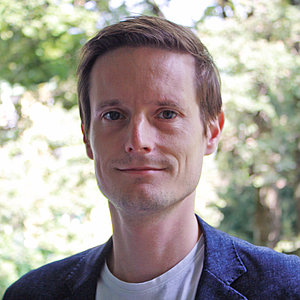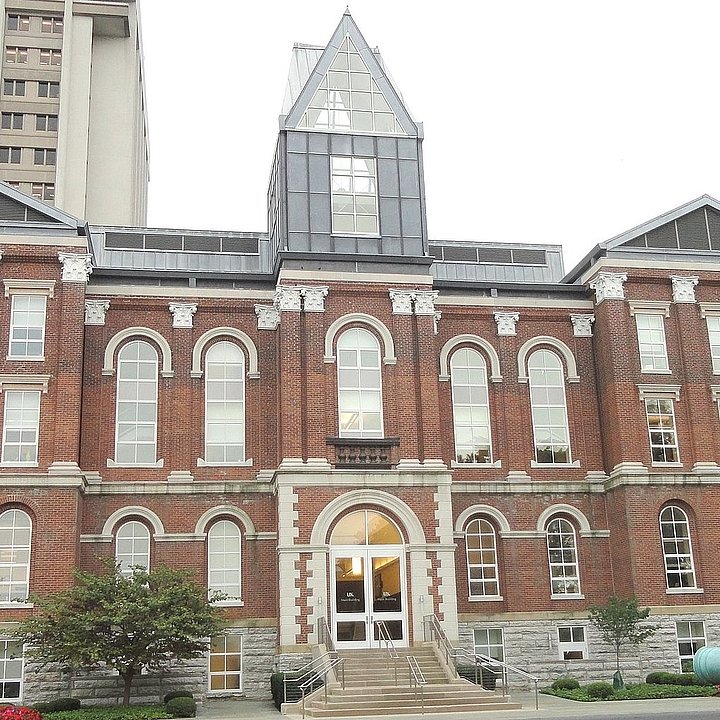"Cultural Narratives of the State in a Comparative Perspective"
June 5 – 13, 2023, Lexington, Kentucky
12th International Summer Academy der Bayerischen Amerika-Akademie
Directors: Alan Nadel (University of Kentucky), Heike Paul (FAU Erlangen-Nürnberg)
Co-Director: Martha Schoolman (Florida International University, Miami)
Coordinator: Emily Naser-Hall (University of Kentucky)
Photo: University of Kentucky, Lexington ©Wikimedia
Thema
A "cultural narrative" is a category defined not by its structure but by its function, which is to locate time; it is grounded in the premise that, in this sense, the functions of a narrative are historically specific and culturally delimited; and it is presumed that historically specific conditions render specific narratives cogent and others absurd, such that, at any given moment, at any given social site (the family, the community, the state, the nation), some cogent narratives are tacitly accepted as universally true and others as viable possibilities. The map of the absurd, the tacitly true, and the viably cogent, therefore, comprises any specific culture or subculture, and thus that culture's imaginative works reflect its cogent narratives and also are, through acts of iteration and reinforcement, (re)produce that culture.
In that context, we wish to stage an international, comparative and multidisciplinary conversation about the historical and contemporary status of the state as a formation that is variously political and cultural, coercive and democratic, radically stable and uniquely (or perpetually) under attack. The modern nation-state is a ubiquitous form of political organization in the West, usually including representative democracy with a constitutional government that implements the separation of powers into a system of checks and balances. It includes – bound to its territory – a claim to sovereignty and to a legitimate monopoly of violence. What is more, the Western nation-state operates in a liberal market economy. Symbolically, any state or political system relies on affirming its legitimacy by way of foundational documents ("national archive") and abstract speech acts ("we, the people"), iconic visualization of power (the oval office, the capitol dome), and the reiteration of performative rituals and cultural practices (national holidays, inauguration ceremonies). The state and its institutions can become mythologized in state narratives (e.g. the president and the presidency, the supreme court); their workings can be rendered invisible and may operate in concealed and hidden ways, such as their thematic iteration in aspects of material and popular culture, and they can be pitted against each other in struggles for power. In times of crisis, however, these state narratives are summoned, re-affirmed, questioned, or transformed depending on their capacity to provide stability and legitimacy.
This year's theme speaks to both academic debates and pressing political struggles on both sides of the Atlantic, at a time in which the state and its institutions, as well as governmentality, as such, seem to be under particular pressure. Given the traditional focus within American Studies on the legitimizing and unifying roles of state narratives, our animating questions will concern how we must reorient our thinking and revise our archives in response, for example, to the willful incoherence typified by leaders such as Bolsonaro, Trump, and Boris Johnson, or the implications of state violence and climate crisis. Possible approaches and research foci may include: the critical discourse entailed in calls for a strong or a lean state; the privileging of the "national security state" over value of civil liberties for the sake; the countervailing call for the state to protect social interests or the habitability of planet by intervening against market the forces; the role of narrative in working out questions of belonging, statelessness, and statehood/citizenship; the limits of statecraft in the age of globalization; the narrative contours of populist movements on both sides of the Atlantic and their production of "retrotopian" state narratives glorifying bygone times; and the resurgence of dystopian literature as a cultural touchstone.
Programm
Das Programm der Summy Academy umfasst Hauptvorträge amerikanischer und europäischer Dozierenden sowie work-in-Progress-Präsentationen von Doktorand*innen und Nachwuchswissenschaftler*innen. Alle Vorträge werden in Plenarsitzungen gehalten, wobei ausreichend Zeit für Fragen und Diskussionen zur Verfügung steht. Das achttägige Programm umfasst auch mehrere kulturelle Veranstaltungen in der Region.
Zu den Hauptvortragenden in diesem Jahr zählen: Rich Blint (New School for Social Research), Alexandra Ganser (University of Vienna, Austria), DaMaris Hill (University of Kentucky), Carol Mason (University of Kentucky), Alan Nadel (University of Kentucky), Diane Negra (UC Dublin), Heike Paul (FAU Erlangen-Nuremberg), Donald Pease (Dartmouth), Katja Sarkowsky (Augsburg University), Birgit Spengler (University of Wuppertal), Martha Schoolman (Florida International University), Hortense Spillers (Vanderbilt University, Emerita).
Kulturelles Rahmenprogramm
Zu den Aktivitäten in und um Lexington gehören ein Abend in einer örtlichen Blues-Bar sowie Besichtigungen einer Vollblutpferde-Farm, der Woodford-Bourbon-Destillerie, des Underground Railroad Freedom Museum in Cincinnati und des Henry Clay Estate.
Teilnahmegebühr
In der Teilnahmegebühr von $550 (USD) ist enthalten
- die gesamte Unterrichtsgebühr
- acht Nächte in Universitätswohnheimen wenige Gehminuten von den Präsentationen entfernt
- alle Eintrittskarten zu den kulturellen Events
- alle Fahrten zu den kulturellen Events
- drei Abendessen
Die Zusage der Teilnahme beinhaltet außerdem einen Zuschuss von bis zu 750 € für die Reisekosten über den Atlantik.
Any Questions? We Are Happy to Help You!

Referent Bayerische Amerika-Akademie
E-Mail
straub@amerika-akademie.de
Telefon
089 55 25 37-42
